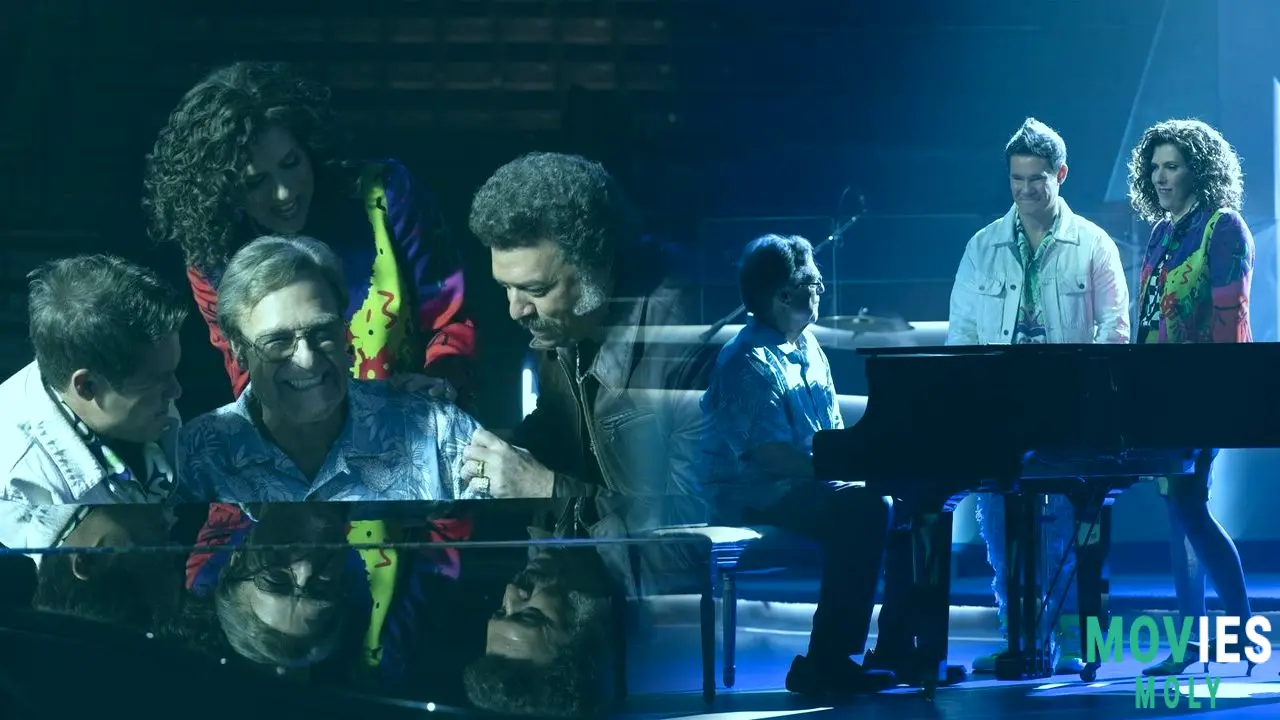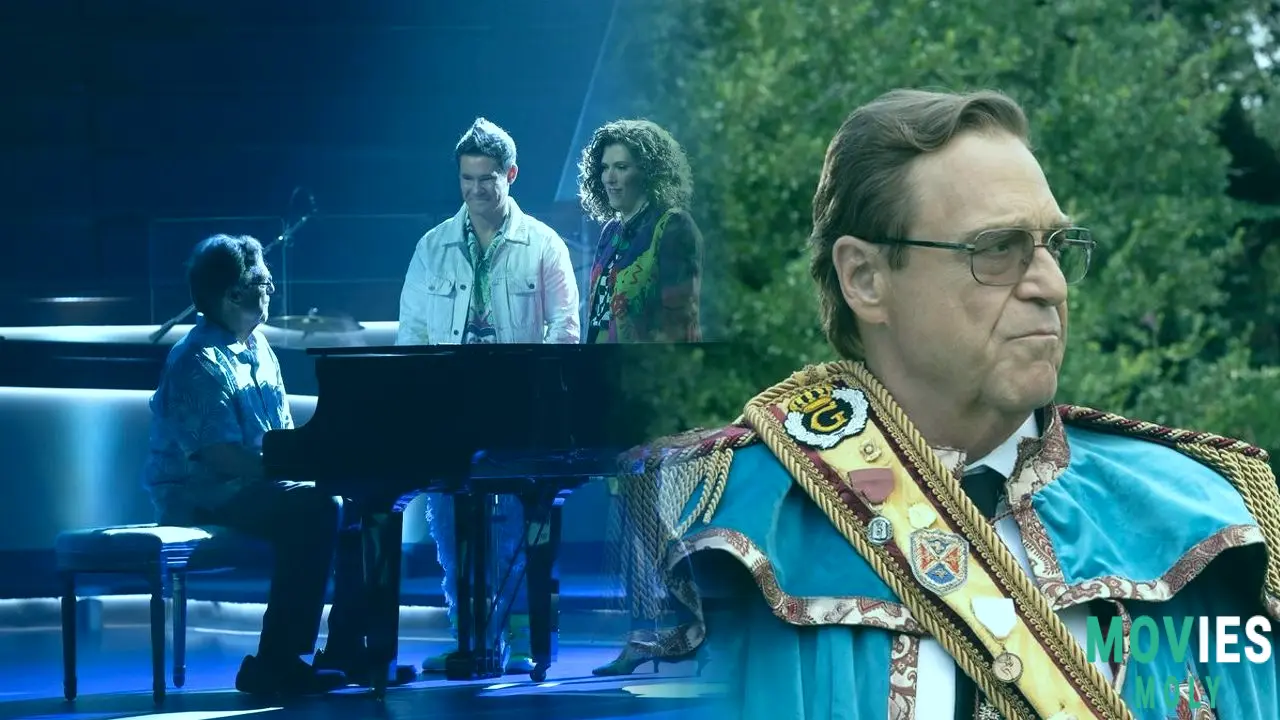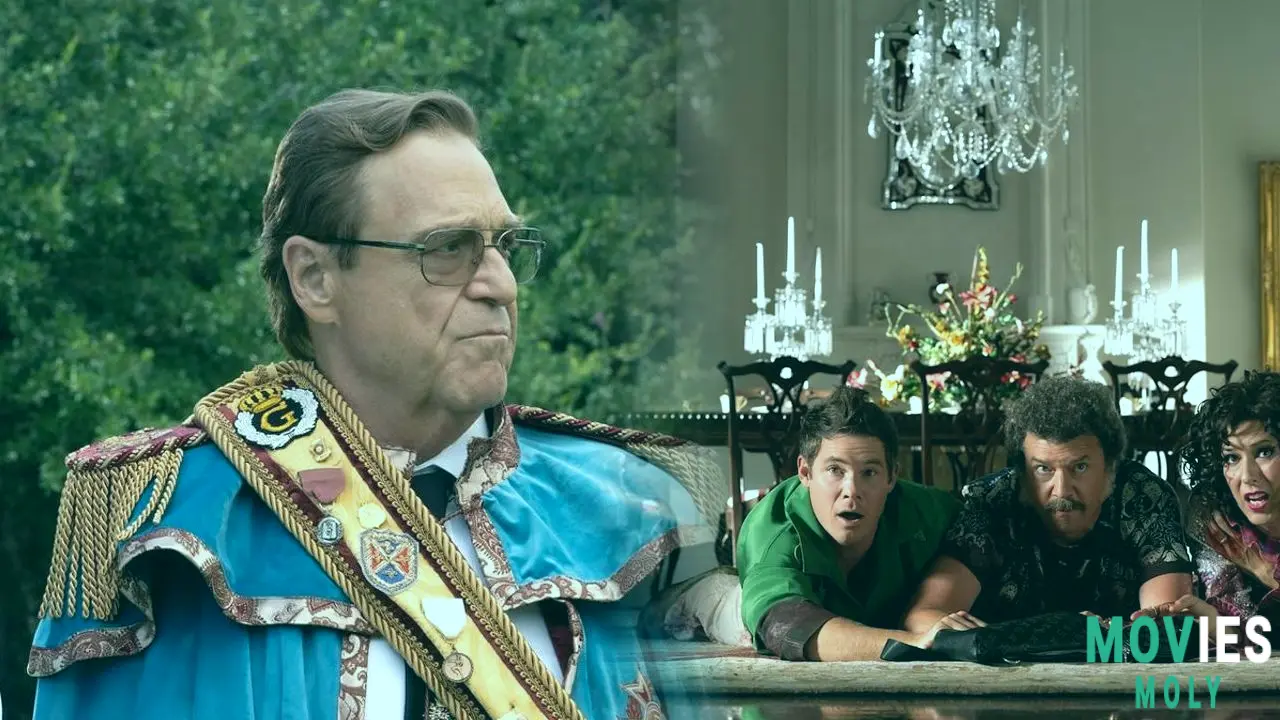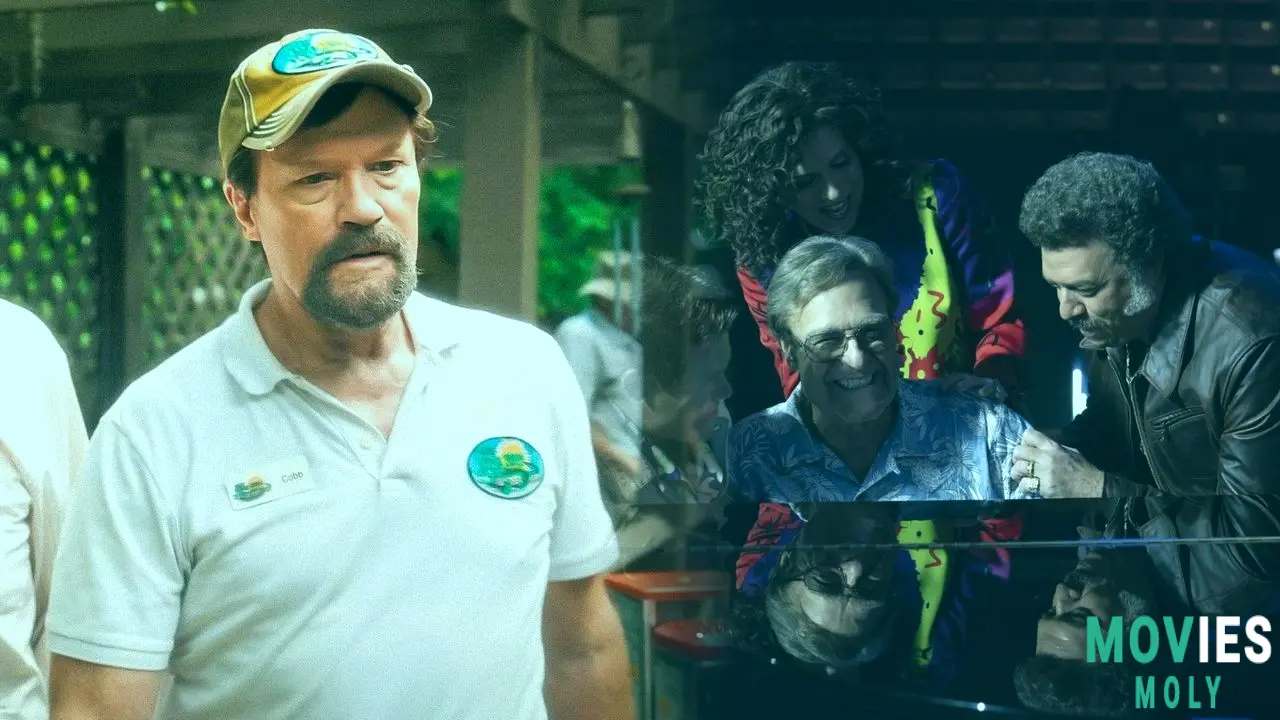Warning: Contains spoilers for The Righteous Gemstones Series Finale, “That Man of God May Be Complete.”
After four seasons of sinful shenanigans, explosive betrayals, and more full-frontal nudity than one might expect from a show about televangelists, HBO’s The Righteous Gemstones ended its run with a finalesque flourish that somehow managed to be both bombastic and deeply heartfelt. Creatively unleashed as ever, and anchored by the emotional gravity of Eli Gemstone’s (John Goodman) journey, the series finale — That Man of God May Be Complete — delivered a last-ditch chaotic sermon that purified the characters through fire, blood, and prayer.
The violent twist with Corey Milsap turns chaos into a crucible for the GemstonesJust when it seemed like the Gemstones had weathered every storm — including the deranged Cobb Milsap’s (Michael Rooker) reign of terror — the finale threw a curveball in the form of Corey Milsap (Seann William Scott). Former ally turned antagonist, Corey’s descent into madness was as shocking as it was narratively satisfying. Having already killed his abusive father in the previous episode, Corey revealed a dark and disturbing past: he wasn’t just complicit in Cobb’s crimes against Eli and the siblings, he was actively involved in hunting down and eliminating Lori’s (Megan Mullally) exes.
What began as a desperate plea for $7 million to save the alligator park morphed into a chilling hostage scenario at the Gemstones' lake house. The siblings’ attempt to reason with Corey during a cornhole game spiraled into a blood-soaked standoff, with Judy (Edi Patterson), Jesse (Danny McBride), and Kelvin (Adam DeVine) narrowly surviving a brutal attack. The scene — played out like a twisted religious action sequence — could have easily derailed the tone of the show, but instead, it became a powerful crucible that tested the family's faith and unity like never before.
Corey’s death completes the Gemstones’ arc with a sermon on forgiveness and flawed humanity

In a final, desperate gambit, Corey begged the siblings not to tell Lori about his past crimes. But his plea for control quickly turned into a violent breakdown as he sought to eliminate them to keep his secrets buried. Yet, in a twist befitting the show’s themes of redemption, the trio — despite being wounded and traumatized — prayed over Corey in his last moments after Jesse shot him in self-defense. Corey’s dying request for a prayer wasn’t about repentance forced upon him; it was about giving him a chance — however small — to be better in the afterlife than he was on Earth.
This moment of grace from three characters who often struggled to live up to their own sermons was one of the most poignant in the entire series. It wasn’t just about Corey. It was about Jesse, Judy, and Kelvin finally stepping into their roles as shepherds, not just sinners. For a show that thrived on mocking televangelist hypocrisy, it ended up delivering one of the most authentic explorations of faith, forgiveness, and imperfection on television.
The final wedding, Aimee-Leigh’s ghost, and Eli’s hopeful new beginning with Lori

Surviving the bloodbath, the series flashed forward to a joyous — and symbolically loaded — moment: Kelvin’s wedding to Keefe (Tony Cavalero). The celebration was complete with fireworks, heartfelt smiles, and a sense of closure for the siblings’ chaotic journey. Even Adam DeVine, known for his comedic energy, described filming the wedding as “such an awesome way to end the show.” It was a superhero-style victory lap for a team that rarely functioned smoothly but always stuck together when it mattered.
And then there was the final scene. After four seasons of drifting without Aimee-Leigh (Jennifer Nettles), the family matriarch whose voice still guided them from beyond the grave, Eli was shown alone on a dock. But not for long. Lori — who had been estranged from the family — approached him, ready to join him on his next voyage. Danny McBride called this ending “a logical place to take the story,” and the cast echoed the sentiment: it wasn’t about replacing Aimee-Leigh, but about moving forward with someone who truly belonged in the family.
“It was a very cool, understated way to go, ‘Oh, there’s hope for everyone,’” said Edi Patterson. And that’s exactly what it was — hope, not in the form of a miraculous resurrection, but in the form of an honest second chance.
Religious satire meets emotional depth — The Righteous Gemstones finale is a masterclass in tonal balance

What makes The Righteous Gemstones finale stand out — especially for a show that often veered into absurdity — is how tightly it wove its wildest moments into the fabric of its core themes. A golden Bible stolen, a murderer's confession, a televangelist family praying over a dying man — these could have been nonsensical plot points. Instead, they became modern parables about broken people seeking meaning, messengers fumbling their message, and the messy, marvelous process of redemption.
Danny McBride, who wore the hats of creator, writer, director, and star, clearly relished the no-rules playground he had with Gemstones. But he also gave us a story that mattered — one that grappled with grief, faith, masculinity, and love in ways that rarely hit the mark this squarely. As McBride put it, he wanted viewers to imagine what comes next for these characters. And that’s the mark of a truly complete ending.




